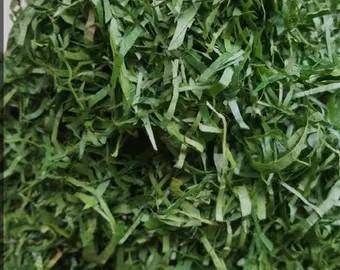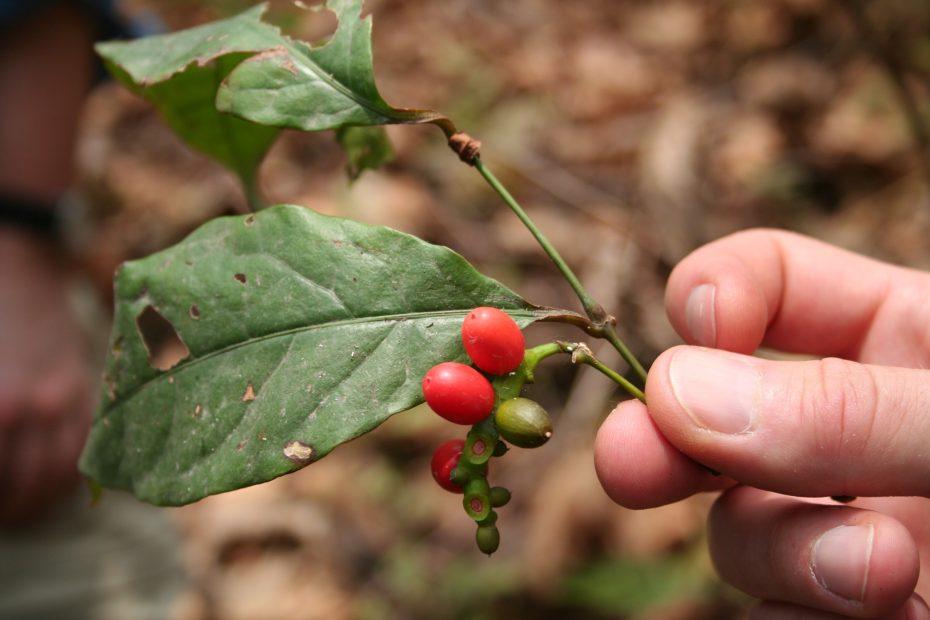Ukazi leaf, known scientifically as Gnetum africanum, is a leafy vegetable native to the tropical regions of West and Central Africa. Often called “wild spinach” or simply “ukazi” in English, this versatile leaf is cherished for its unique flavor, culinary applications, and impressive health benefits.
Its rich nutritional profile and traditional uses have made it a staple in many African households, supporting overall wellness through essential vitamins, minerals, and bioactive compounds.
Nutritional Profile and General Health Benefits of Ukazi Leaf

Ukazi leaf boasts an impressive nutritional profile, packed with essential vitamins A, C, and E for immune function, skin health, and vision support. High vitamin A aids eye health and healthy skin, while antioxidants combat oxidative stress to lower chronic disease risk.
Rich in dietary fiber, it promotes digestive health by aiding digestion, regulating blood sugar, preventing constipation, and supporting weight management through satiety.
Minerals like calcium, magnesium, iron, and potassium contribute to bone health, muscle function, and healthy blood pressure. Regular consumption helps meet nutritional needs and enhances well-being.
Ukazi’s phytochemicals, including flavonoids, tannins, and alkaloids, provide anti-inflammatory, antimicrobial, and antioxidant effects, traditionally used for digestive issues, respiratory problems, and inflammatory conditions.
2. Ukazi leaf nutritional value: Fresh Ukazi (Gnetum africanum) leaves, highlighting their role as a source of vitamins, minerals, and fiber for health benefits.
Read Also: 12 Health Benefits of Okro Water
Reproductive and Women’s Health Benefits of Ukazi Leaf
In some cultures, Ukazi leaf supports reproductive health and fertility, with beliefs that its nutrient-dense profile aids hormonal balance and reproductive function.
Traditional use includes enhancing fertility and addressing women’s health issues, attributed to vitamins and minerals supporting overall vitality.
While evidence is emerging from nutritional studies, moderation is key, and consulting healthcare providers is advised for specific concerns.
Culinary Uses and Preparation of Ukazi Leaf

Ukazi leaf is a key ingredient in soups, stews, and salads across African cuisines, with its slightly bitter, earthy taste pairing well with meats, fish, and vegetables.
1. Selecting fresh leaves: Choose dark green, tender leaves without wilting or discoloration.
2. Washing: Rinse thoroughly under cold water or soak to remove dirt.
3. Cooking methods: Sauté briefly, boil (to reduce oxalates), steam to retain nutrients, or add to soups/stews in the final stages.
4. In dishes: Combine with proteins and starches; use in salads after blanching.
5. Tips: Consume in moderation due to oxalates; store wrapped in damp paper in the fridge for a few days.
Cooking reduces oxalate levels, making it safer while preserving benefits.
3. Ukazi in traditional dish: Ukazi leaves featured in a classic African soup or stew, showcasing culinary versatility and flavor enhancement.
Read Also: Health Benefits of Ugu Leaf
Scientific Evidence and Case Studies on Health Benefits of Ukazi Leaf

1. Antioxidant activity: Raw and decoction forms of Gnetum africanum leaves show significant antioxidant properties, neutralizing free radicals and reducing oxidative stress.
2. Anti-inflammatory effects: Phytochemicals in Ukazi leaves exhibit anti-inflammatory activity, helping mitigate inflammation and supporting conditions like pain or swelling.
3. Antimicrobial properties: Extracts demonstrate activity against bacteria and fungi, contributing to infection-fighting potential in traditional uses.
4. Nutritional richness: Leaves contain high levels of dietary fiber, protein, vitamins (A, C, E), and minerals (calcium, iron, magnesium, potassium), promoting digestive, immune, and bone health.
Summary of Health Benefits of Ukazi Leaf
| Aspect | Description |
|---|---|
| Introduction | Ukazi leaf (Gnetum africanum), known as wild spinach, is a nutrient-dense leafy vegetable from West and Central Africa, valued for flavor, nutrition, and traditional medicine. |
| Nutritional Profile | High in vitamins A, C, E; minerals (calcium, iron, magnesium, potassium); dietary fiber; protein; supports immunity, vision, skin, bones, and digestion. |
| Digestive Health | Fiber aids bowel regularity, prevents constipation, supports gut health, regulates blood sugar, and promotes satiety for weight management. |
| Anti-inflammatory & Antioxidant | Phytochemicals reduce inflammation, combat oxidative stress, and lower chronic disease risk. |
| Antimicrobial & Other | Exhibits activity against pathogens; traditional uses for sore throat, nausea, respiratory issues; potential calming effects. |
| Reproductive Health | Traditionally supports fertility, hormonal balance, and women’s health due to nutrient profile. |
| Culinary Uses | Used in soups, stews, salads; sauté, boil, steam; pairs with meats/fish; cooking reduces oxalates. |
| Considerations | Consume in moderation to avoid oxalate issues; consult professionals for pregnancy or conditions. |
Frequently Asked Questions on the Health Benefits of Ukazi Leaf
1. What is Ukazi leaf and its main nutritional benefits?
Ukazi leaf (Gnetum africanum) is a leafy green rich in vitamins A, C, E, calcium, iron, magnesium, and fiber, supporting immunity, vision, bone health, skin, and digestion.
2. How does Ukazi leaf support digestive health?
Its high dietary fiber promotes regular bowel movements, prevents constipation, supports gut microbiome, and aids nutrient absorption while regulating blood sugar.
3. Does Ukazi leaf benefit women’s reproductive health?
Traditionally used to enhance fertility, regulate menstrual cycles, reduce discomfort, and support reproductive function through its nutrients and phytonutrients.
4. Can Ukazi leaf help with weight management?
Yes, low-calorie yet nutrient-dense with high fiber that promotes fullness, reduces calorie intake, and supports healthy weight loss.
5. Is Ukazi leaf safe for everyone?
Generally safe in moderation, but those with kidney issues (due to oxalates), pregnancy, or conditions should consult a healthcare provider.
6. How can I incorporate Ukazi leaf into my diet?
Add to soups, stews, stir-fries, or salads; sauté, steam, or boil to retain nutrients and reduce oxalates for maximum benefits.
7. What are the antioxidant properties of Ukazi leaf?
Rich in vitamins and phytochemicals that neutralize free radicals, reduce oxidative stress, and potentially lower chronic disease risk.
8. Does Ukazi leaf have anti-inflammatory effects?
Yes, its compounds help mitigate inflammation, supporting overall health and traditional remedies for inflammatory conditions.
9. Can Ukazi leaf boost immunity?
Vitamins A, C, E, and antimicrobial properties strengthen the immune system and help fight infections.
10. Are there any precautions when consuming Ukazi leaf?
Consume moderately and cook to lower oxalates; excessive intake may affect calcium absorption or contribute to kidney stones in susceptible individuals.
Do you have any questions, suggestions, or contributions? If so, please feel free to use the comment box below to share your thoughts. We also encourage you to kindly share this information with others who might benefit from it. Since we can’t reach everyone at once, we truly appreciate your help in spreading the word. Thank you very much for your support and for sharing!
Disclaimer: This article is for educational and informational purposes only. The health benefits described are based on scientific research and traditional knowledge. They ayre not a substitute for professional medical advice, diagnosis, or treatment. Always consult a healthcare professional before using any herb or natural remedy for medical purposes.
Read Also: 19 Foods to Lower your Blood Pressure

